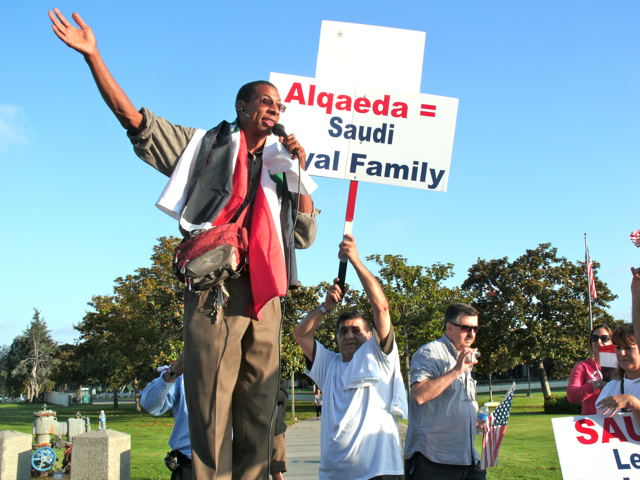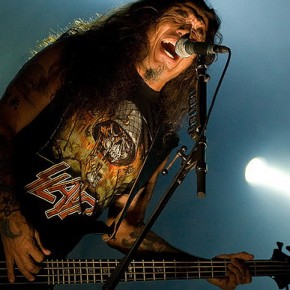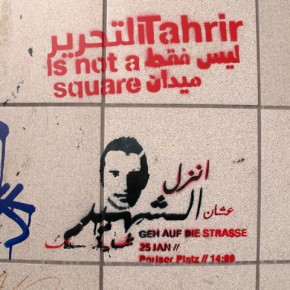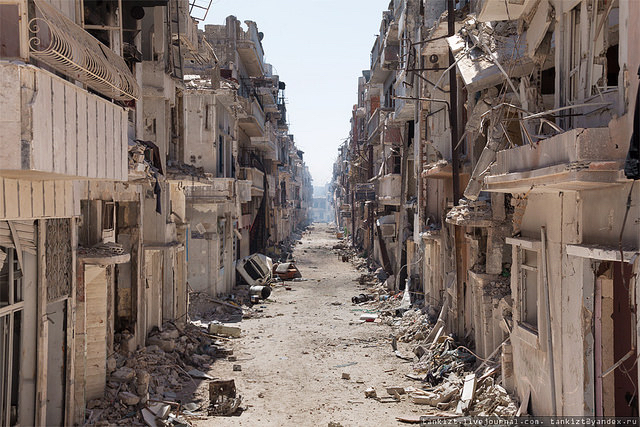“Be careful, the walls have ears.” Ammar Khaf, a spokesman for the Los Angeles chapter of the Syrian American Council, quotes a saying that millions grew up with under Baathist rule. He talks of the fear that gripped the diaspora when Mukhabarat agents assassinated prominent exiles in the 1980s. But as anti-Assad protests spread, the community grew emboldened.
“At the first solidarity event in March 2011, only 20 people showed up,” Khaf says. “But within two months of the Revolution, I’d collected 400 names and email addresses.” SAC chapters in Los Angeles, Sacramento and San Diego report an “unprecedented mobilisation” of a community that numbers around 18,000 in California, according to the Arab American Institute. The SAC estimates there are a few hundred thousand Americans of Syrian descent. Many have lived here for generations and identify neither with Assad, nor with the opposition.
But the split is glaring in Los Angeles. And the walls still have ears, if you believe the pro-government camp. One participant in an online forum appeared to copy the Mukhabarat. Israeli sources close to Souciant doubt the address is real. However, intimidation was clearly the goal. A follow-up message read, “Thanks for saving the Syrian taxpayers. You inform the secret police by e-mail, saving them the cost of investigation. A true patriot.”
If the email address is fake, the risk of blowback against relatives is real. Pianist Malek Jandali recently performed in a Syria benefit concert in Los Angeles. He paid for speaking out. His parents were attacked in Homs, and their home was sacked. These reprisals haven’t deterred the SAC and related groups such as the Syrian Emergency Task Force. In April, they urged California Senators Dianne Feinstein and Barbara Boxer to push for the delivery of night goggles and encrypted walkie-talkies to the opposition. On the humanitarian front, they’ve advocated safe areas for refugees. The ideas being developed in part by Ammar Khaf’s think tank, the London-based Strategic Research and Communication Centre
Media outreach is equally important. “Assad wants this conflict to be reported as a sectarian war leading to chaos, and that’s what some American journalists are doing,” concedes Rashad al-Dabbagh, the SAC’s communications director in LA. “To counter that, we try to secure coverage of human stories. For example, we’ll connect an American reporter with a Syrian refugee.” Network television isn’t al-Dabbagh’s only target. Last week, he helped to place a story on New America Media.

The Houla massacre has sharpened that human focus and diminished the voices of al-Dabbagh’s opponents on local media. “If they do invite you at all, they quickly cut you off,” Riad “Ray” Saeid tells me at a rally in front of the Los Angeles Federal Building. “I’ve been on KBFC (radio) only a couple of times.” Ray heads Arab-Americans for Syria . I can barely hear him over the pro-Assad chants of his friends. Outnumbered by around three to one, they’re trying to match the vocal power of the Free Syria crowd across the road.

At first, Ray sounds reasonable. He calls for peace and dialogue. “A dead Sunni, a dead Shi’ite and a dead Christian all smell the same after three days,” he says. But his repeated and impassioned insistence that his rivals are “al-Qaeda sleeper cells; Wahhabis who consider me an infidel” fails to stick. “Does America want a second Iraq?” would surely be a more effective media message. As we talk, Syrian nationalists mingle with anti-imperialists holding NATO-bashing placards. An Iranian Marxist makes a speech, watched by….an Orthodox Jew.
Contrast that diversity with the Free Syria protesters, all hammering home the images of Houla’s murdered children. Small cardboard coffins are raised aloft as driversby on LA’s busiest thoroughfare honk their horns. Students from Whitney High School wearing “Walk for Free Syria” T-shirts smile for cameras. The mood is buoyant despite the display of gruesome photos from the homeland. That’s partly because Syria’s honorary consul to Los Angeles defected 10 days ago .
But talk of a turning point may be premature. President Obama is still cautious. “I’m hearing frustration from Arab-Americans with the administration, and some are now leaning towards Romney,” says Hussam Ayloush, executive director of CAIR’s local chapter. “But there’s a chance that pressure from Romney will make Obama more forceful in the next few months.”
I ask Ayloush about the endgame for these demonstrators. Will they repatriate if Assad goes? “Around half of the diaspora left for political reasons; the other half came for economic opportunities,” he says. “Many of the political exiles — the doctors, the engineers, the social scientists — will want to rebuild their homeland.”
Will there be a place for Arab-Americans for Syria? In reply, Ayloush simply translates the chant thundering across Wilshire Boulevard: “We are thugs who are hungry/We want to eat the infiltrators.”
Photographs courtesy of the author





